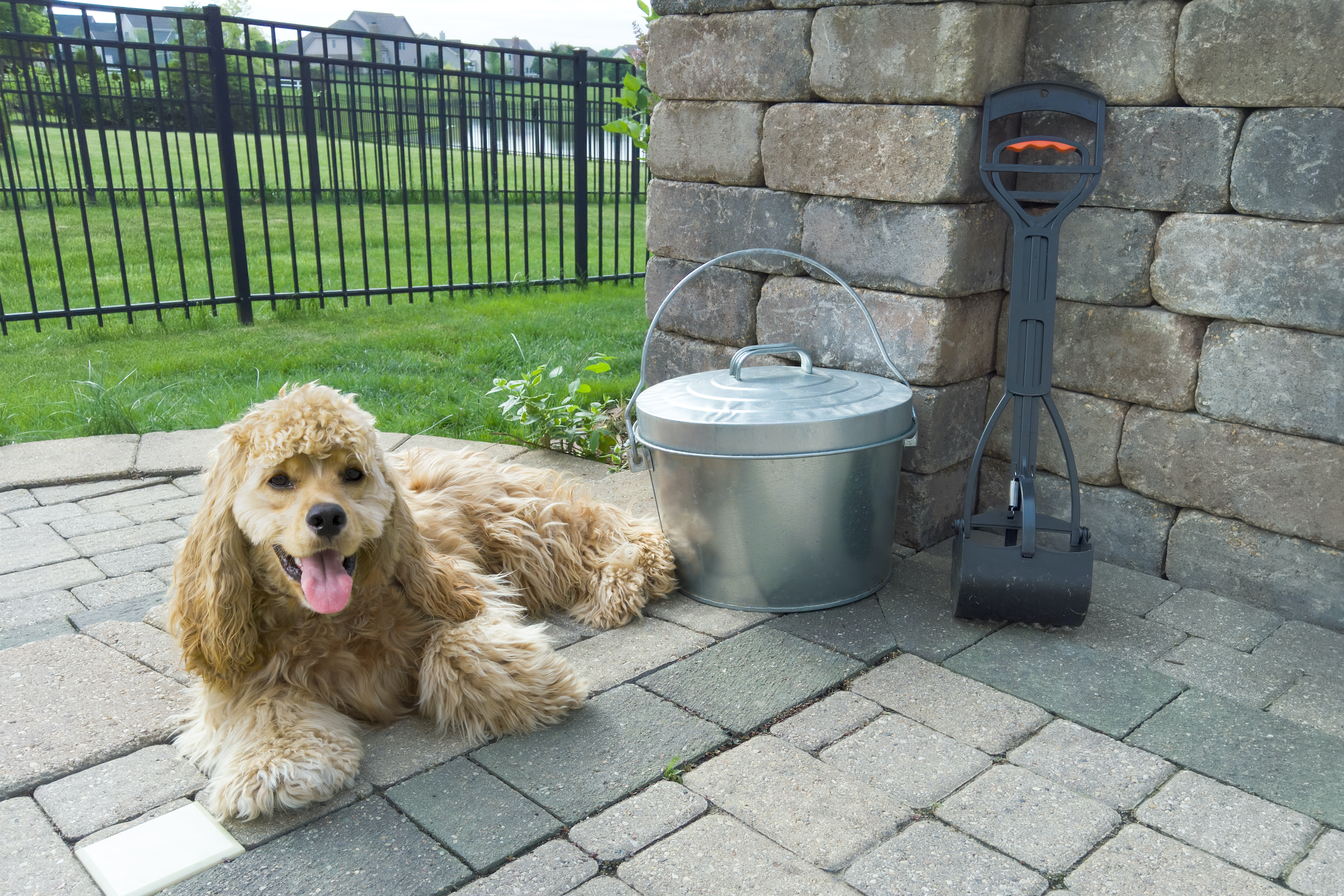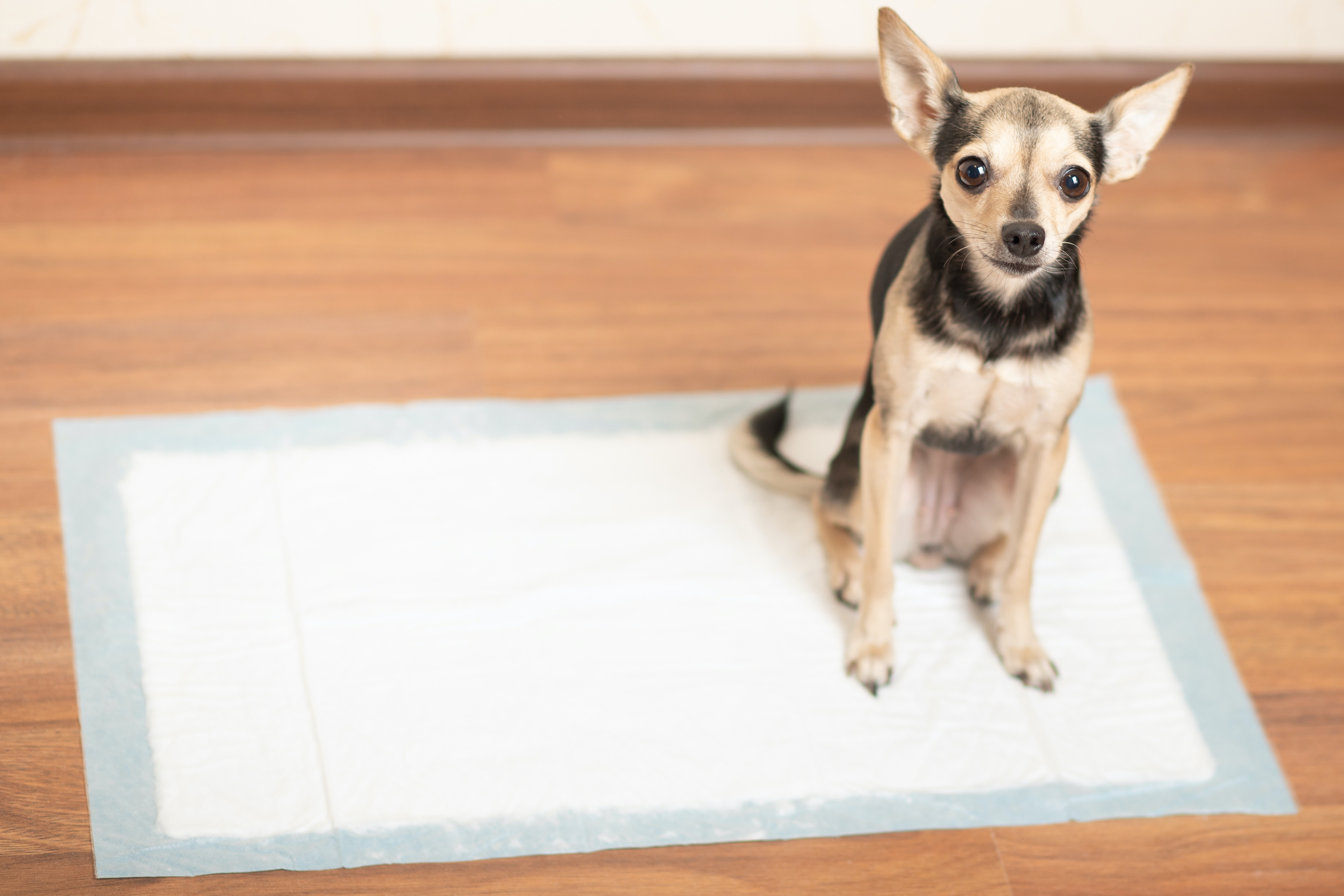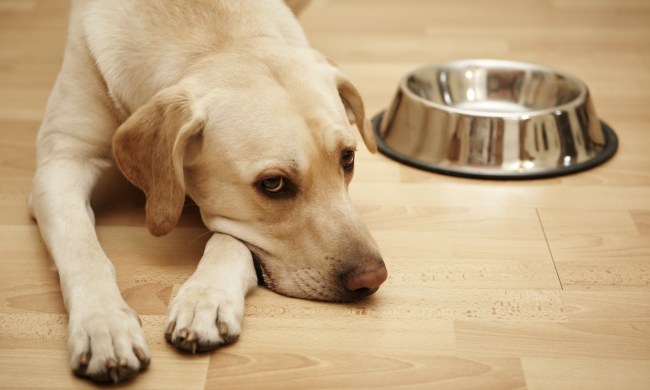Ah, the glamorous life of a pet owner: cleaning up accidents, pulling out who knows what from your dog’s mouth, scooping poop…. Luckily, new technologies and life “hacks” are making it easier than ever to tackle these dirty jobs, whether you’re looking into new cleaning products or learning how to get rid of dog poop in the yard without scooping. Yep — without scooping!
While your pet’s waste needs to be picked up in some way or another, stooping (literally) to pick poop off the ground is a thing of the past. You might be convinced your dog enjoys making you pick up after her, but when it’s this easy, you won’t mind, either. Do you have any other favorite, easy ways to clean up after your pup?
Here’s how to get rid of dog poop in your yard … without scooping.
Use a pooper-scooper tool
If you’d rather not bend down or use plastic bags to pick up after your dog, a pooper-scooper tool may be exactly what you need. While each product works a little differently, the idea remains the same — sweeping the waste into the scooper to be transferred, bag-free, into a receptacle.
The simplest scoopers use a long-handled rake and bin to help you get rid of the evidence, so to speak. When you’re done, simply pour out the bin’s contents into a trash or compost bin (more on composting later) and safely store your tools until next time. Other scoopers use spring technology to pick up poop with a jawlike motion — no separate bin required!

Compost or bury your dog’s poop
If you’re an avid outdoorsperson, you may have heard the recommendation to bury waste, whether human or canine, when you can. Although this idea can be great in a pinch, burying your pet’s poop in your yard may not be such a great idea. Animal waste can contain bacteria and parasites, which could leach into your lawn, plants, and even any food you grow in your yard.
Instead, set up a safe compost bin to help reduce and reuse your dog’s excrement. If you’d rather not use compostable poop bags, it’s just as easy to scoop solid waste using a shovel or rake and deposit it directly into the compost bin.
Use a potty pad or indoor bathroom
Although potty pads are popular for training your pup’s bathroom habits, they can be a helpful tool for saving space (and effort!), too. Most pads won’t take up a lot of room, although they come in multiple sizes to accommodate your home.
They’re great as indoor bathroom spaces for your pet if you can’t get outside, although they make cleanup that much easier as well. A disposable pad requires bending down just once to replace it, no matter how many times your pup may have used it. (Just, you know, don’t wait that long to replace it!)

Dog-poo-powered streetlamps
Although this option isn’t widely available just yet, dog-poop-powered streetlights might be the next big thing. In 2018, folks in Malvern Hills, UK, installed a special streetlight that uses the methane and carbon dioxide found in dog waste to power itself every evening. Dog owners use the lamp’s provided paper bags to clean up, then deposit the waste into a machine that does the rest of the work.
Although Brian Harper, the creator of this environmentally friendly streetlight, has noticed a reduction in dog waste near the invention, his ideas have yet to take hold worldwide. In 2010, however, a Cambridge, Massachusetts, dog park installed a poop-to-methane converter created by a local engineer-artist; hopefully, these ingenious ideas won’t be the last.
Bonus: Flushable dog poop bags
Although this option technically requires scooping, the way you dispose of your dog’s poop will never be the same. The U.S. Environmental Protection Agency lists flushing as the most environmentally friendly way to eliminate pet waste, though not everyone is willing to try out a reusable poop bag.
Luckily, there are several trusted brands of flushable dog poop bags to choose from. They won’t sit in landfills for hundreds of years like plastic waste bags, but they won’t clog your toilet, either. Quick, easy, and odor-free!
With these pain-free alternatives to scooping poop, you can keep your yard clean and pretty with minimal effort. Your back will certainly thank you for bending over less frequently — even if your dog seems to potty every 20 minutes! There’s an ideal option for every home just waiting to be found, but don’t get discouraged if it takes a little trial and error first. Poop happens!



